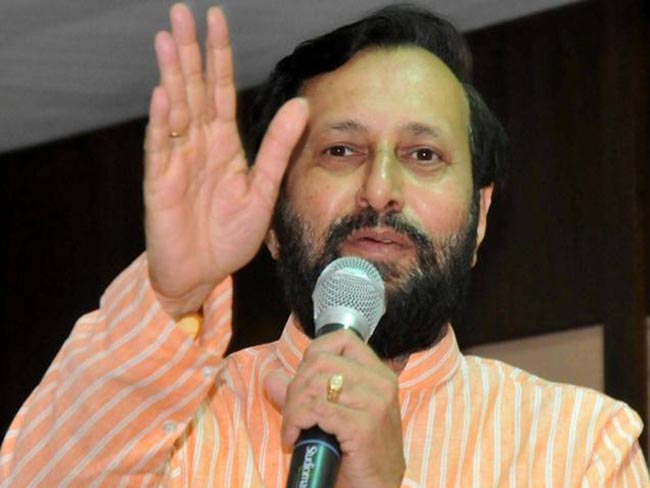Indian Environment Minister Prakash Javadekar Tuesday expressed concern over the limited carbon space available to developing countries for their growth imperatives.
In a bilateral meeting with Todd Stern, the head of the US delegation at the 20th session of the Conference of the Parties in Lima (COP-20), Javadekar discussed issues related to Intended Nationally Determined Contributions (INDC), pre 2020 ambitions and elements of the Paris 2015 agreements including mitigation, adaptation, technology transfer framework, and capacity building.
Standing firm on India’s stance with respect to INDCs, he emphasized that the review of its targets by other countries was unacceptable.
The minister also highlighted that the principle of common but differentiated responsibility should be at heart of the Paris Agreement that will be discussed at the United Nations Framework Convention on Climate Change (UNFCCC) 2015.
Javadekar also reiterated the need for technology upgradation through joint collaborative research with the US.
 Both the delegations agreed to continue to work jointly to make the outcome of Lima COP positive and acceptable, said an official statement.
Both the delegations agreed to continue to work jointly to make the outcome of Lima COP positive and acceptable, said an official statement.
China and India called on developed countries to honour their promise.
Meanwhile, Prakash Javadekar and his Chinese counterpart Xie Zhenhua Tuesday called on developed countries to honour their promise of support to developing countries and provide funds for combating global climate change.
In a bilateral meeting in Lima ahead of the high-level segment of the COP-20 in the Peruvian capital, the two discussed issues of mutual interest with respect to the ongoing negotiations on climate change, including the recent China-US joint statement that seeks to strengthen their bilateral cooperation on the issue, an official statement said.
Javadekar and Xie emphasized that the outcome of negotiations under the Lima Convention must fully adhere to the principles of equity, common but differentiated responsibilities and respective capabilities.
They stressed the need to maintain and strengthen the unity of developing countries to achieve an ambitious, comprehensive and equitable outcome of the process, said the statement.
They also agreed that adaptation to climate change represents an urgent global priority and must be given equal emphasis in the new agreement.
India needs to catch up on carbon efficiency developments
There is need for India to catch up on carbon efficiency developments, according to a climate change performance report.
“National experts in India downgraded their country, which resulted in a drop of six places compared to the previous year,” said the Climate Change Performance Index 2014 report by Germanwatch and Climate Action Network (CAN) Europe which was released Monday at the UN climate conference here.
The report ranked India at the 30th place among countries whose performance was “moderate” in lowering CO2 emissions.
“The CO2 emissions are increasing relatively quickly in India. Its share of renewable energy is still good, but the development could be faster,” the report said.
Data showed that India was among the 10 largest CO2 emitters with the share of global CO2 emissions at 5.14 percent.
While Denmark, Britain and Portugal topped the climate change index with scores of 75.23, 69.66 and 68.38 respectively, Saudi Arabia, Kazakhstan and Iran were at the bottom of the table with 25.17, 37.64 and 37.81 points. A total of 61 countries were included in the report.
India scored 57.16 points in the index.
The report used emissions data provided by the International Energy Agency (IEA) to rank the countries.
“No single country is yet on track to prevent dangerous climate change,” it said, adding that the latest edition of the report shows a new emission peak. However, unexpectedly, it also draws a cautious picture of hope.
IANS
